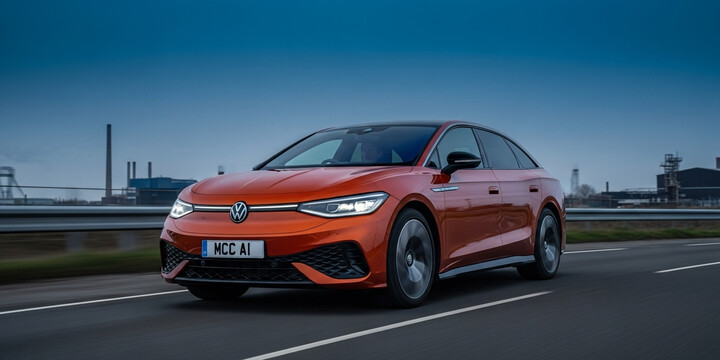VOLKSWAGEN ID.7 TOURER (2024-) 5DR TOURER 0.0 ELECTRIC PRO S 86KWH 286 MATCH PLUS AUTO

Buyer's Guide & Data from our Checks
The VOLKSWAGEN ID.7 TOURER (2024-) 5DR TOURER 0.0 ELECTRIC PRO S 86KWH 286 MATCH PLUS AUTO is a fully electric family estate car that fits into the growing market of electric vehicles in the UK. Its spacious design makes it ideal for families or those needing extra cargo space, and it appeals to environmentally conscious drivers looking to move away from traditional petrol or diesel cars. Based on mycarcheck.com data, although the sample size is small at ten checks, the vehicle is being checked for its future market presence, as it’s a new model released in 2024. The average valuation in private sales around £38,600 indicates a competitive price point for a high-tech electric car with a substantial range.
This model is tailored for everyday use, offering practicality and comfort for daily commuting, school runs, or longer trips. Its electric powertrain provides smooth acceleration and low running costs, making it a popular choice among eco-minded drivers. The vehicle is also noted for its advanced features, spacious interior, and sleek design, standing out from other electric estates for its blend of style and efficiency. Compared to rivals, it’s known for its reliable performance and innovative technology, making it a solid option in the electric estate segment.
In the used car market, the VOLKSWAGEN ID.7 TOURER is becoming recognized for its quality and modern appeal. While still early in its market cycle, it offers a compelling choice for those seeking a versatile electric car with large range capabilities. It is best suited to families, executives, or tech-savvy drivers who want a spacious, reliable, and environmentally friendly car. With its impressive features and brand reputation, it’s poised to become a noteworthy contender in the evolving electric vehicle segment.
Key Findings
The following statistics are drawn from our checks of 10 different vehicles, run between August 21st 2025 and December 31st 2025. These real-world insights provide context for this vehicle's place in the market, as well as its typical usage.
10
Lookups
Lookups
0
Hidden Histories
Hidden Histories
0k
Average Mileage
Average Mileage
£38,600
Average Valuation
Average Valuation












